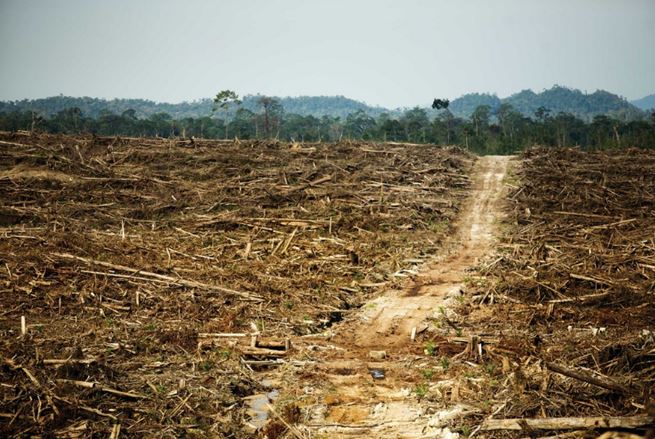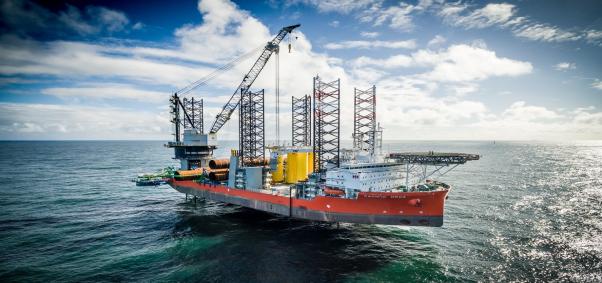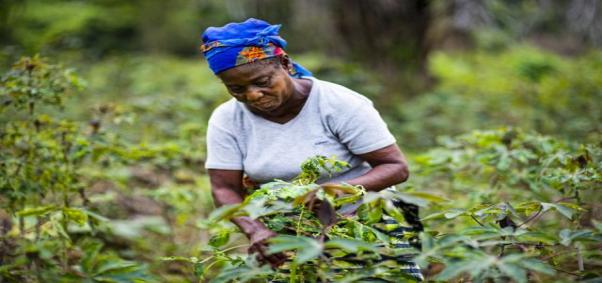
Paris, 5 December, 2015: A new report from the New Climate Economy finds that land use practices that restore degraded agricultural or forest lands and protect natural areas could reduce emissions by as much as 9.0 Gt CO2e by 2030 while also delivering more productive agricultural lands and greater resilience of rural livelihoods. The report was launched by Ngozi Okonjo-Iweala, former Finance Minister of Nigeria and Global Commissioner on the Economy and Climate, at the Global Landscapes Forum taking place during COP21 in Paris.
The report, “Restoring and protecting agricultural and forest landscapes and increasing agricultural productivity”, emphasizes the benefits of conserving and restoring landscapes that both preserve zones of natural forest and support human populations through sustainable agriculture and forestry.
The new report builds on NCE’s 2014 global finding – that restoring 150 million ha of degraded agricultural lands could provide US$30–40 billion per year in extra smallholder income, additional food for close to 200 million people, more resilient landscapes, and an additional 2 Gt per year in sequestered CO2e. In Rwanda, for example, agricultural restoration efforts improved crop yields by as much as 219%, and between 2009 and 2014, farmer incomes per hectare rose from US$469 to US$2,189.
“Better land use practices are vital for reducing greenhouse gas emission and adapting to climate change, and both awareness and commitment for change is growing in this sector” said Ngozi Okonjo-Iweala in her comments at the Global Landscapes Forum, “Structured capital partnerships – between host governments, debt and equity investors, international donors and civil society – can accelerate this momentum together, doing what none could do individually.”
The report finds that momentum for land use action is growing in both the private and public sectors:
- Leading businesses, such as the members of the Consumer Goods Forum, pledged in 2010 to eliminate deforestation from their supply chains by 2020. Company commitments from members of the Consumer Goods Forum and the Tropical Forest Alliance 2020 now cover as much as 90% of the global palm oil supply chain.
- Initiative 20x20 was launched last year with an aim to restore 20 million ha of land in Latin America by 2020. This target has been expanded to 23 million ha, with 12 countries and two regional bodies on board. Over US$670 million has been pledged by 8 impact investors to support the restoration efforts, and public sector donors are showing interest in supporting risk mitigation and project preparation facilities.
- Germany, Norway, and the United Kingdom announced their intention at COP21 to provide an additional US$1 billion in support to REDD+ per year by 2020 in the fight against deforestation.
Currently, thirteen African countries have submitted INDCs for COP21 that have detailed quantitative targets for emissions reduction through land use interventions that would lead emissions reductions of 1.2 Gt CO2e – equivalent to more than one-third of Africa’s current total annual emissions.
“To realize the benefits of landscape restoration and protection of forests at scale, we need the developed and developing world to work together, and with key partners such as business and indigenous peoples groups”, said Helen Mountford, Program Director of the New Climate Economy.
Current financing needs are also not being adequately met, the report finds, with annual needs in developing countries alone in the vicinity of $250 billion, compared to current, mainly domestic, investment flows of $25 billion per year.
The report recommends:
- A global target of halting deforestation and putting into restoration at least 500 million ha of degraded farmlands and forests by 2030.
- A reorientation of foreign assistance and philanthropic flows to improve livelihoods of the poor and enhance the favourable climate impact of land use. This includes working in structured partnerships with host governments, the private sector, civil society, and people presently on the land.
- Partnerships that scale up international flows for REDD+, focused on generating verified emission reductions, with the aim of financing a further 1 Gt CO2e per year from 2020 and beyond.
- Extending the growing and effective practice in the international private sector of deforestation-free supply chain commitments for key commodities.
“NCE Research shows that reaching global climate objectives by 2030 without addressing land use in developing countries is very unlikely” said Christopher Delgado, co-author of the report and Senior Fellow, World Resources Institute. “And doing so is also essential to addressing the overarching concerns of developing and emerging countries to eradicate poverty and improve food security.”
“We’ve long known that resolving tropical land use issues requires clear and just land rights, effective land use planning and strong enforcement of the laws on the books,” Michael Wolosin, Climate Adviser’s Managing Director and report co-author. “But it also requires a clear value proposition for all stakeholders – and that is what newly emerging landscape-scale strategies achieve. Such partnerships can improve agricultural production and promote equitable rural economic development and food security, all while enhancing forest protection by halting deforestation and massively increasing forest restoration.”
-ENDS-
Notes to Editors:
Restoring and protecting agricultural and forest landscapes and increasing agricultural productivity is a contributing paper for Seizing the Global Opportunity: Partnerships for Better Growth and a Better Climate.
The New Climate Economy is the flagship project of the Global Commission on the Economy and Climate. It was established by seven countries: Colombia, Ethiopia, Indonesia, Norway, South Korea, Sweden and the United Kingdom, as an independent initiative to examine how countries can achieve economic growth while dealing with the risks posed by climate change.
Chaired by former Mexican President Felipe Calderón, and co-chaired by renowned economist Lord Nicholas Stern, the Commission comprises 28 leaders from 20 countries, including former heads of government and finance ministers, leading business people, investors, city mayors and economists.
Research for the Commission has been carried out by a partnership of leading global economic and policy institutes, including the World Resources Institute (Managing Partner), the Climate Policy Initiative, the Ethiopian Development Research Institute, the Global Green Growth Institute, Indian Council for Research on International Economic Relations, the Overseas Development Institute, the Stockholm Environment Institute and Tsinghua University.
For more information go to: www.newclimateeconomy.net
For media inquiries contact:
Ferzina Banaji,Ferzina.banaji@newclimateeconomy.net
Austin Morton,Austin.morton@newclimateeconomy.net
Joel Jaeger,Joel.jaeger@newclimateeconomy.net






